
 On 8 March we report below the story of some women who in Italy are at the top of pharmaceutical companies. There are over 65,000 people employed in the pharmaceutical sector, 42% of whom are women. “It has always been a sector in pink – clarifies the president of Farmindustria Scaccabarozza – especially in the field of research”.
On 8 March we report below the story of some women who in Italy are at the top of pharmaceutical companies. There are over 65,000 people employed in the pharmaceutical sector, 42% of whom are women. “It has always been a sector in pink – clarifies the president of Farmindustria Scaccabarozza – especially in the field of research”.
Even our profession of ISF is increasingly declined to women. Especially in the younger age groups. It is also necessary that corporate organizational systems take this new reality into account, and adapt to it.
Our thoughts go above all to all those anonymous Medical Representatives who carry their bags with effort and dedication every day, who have to face stressful road journeys all day long, face equally stressful company pressures, face their interlocutors with a smile despite the hostility, sometimes offensive, of intolerant waiting rooms and in the evening at home to face the family with "sweetness", with all that it entails. A job unjustly considered not strenuous. And "sometimes" there are also wage inequalities, poor representation in apical and managerial roles (despite high educational qualifications), harassment, sexist attitudes, post-maternity demotions and other more or less indirect forms of inequality.
A special wish to the ISF women on this day of March 8, which we dedicate to them, and with the hope, also, that the day will not be far off when this work will be recognized the value it deserves. May every day be March 8!
The company stories and personal experiences of the presidents and CEOs are united by great individual motivations and articulated internal policies, also centered on welfare and smart working packages that facilitate the working conditions of all employees. Great attention to salary benchmarks and measures to combat sexual harassment.
Taken from Aboutpharma – 7 March 2019 – by
Nicoletta Luppi, president and managing director of MSD Italy
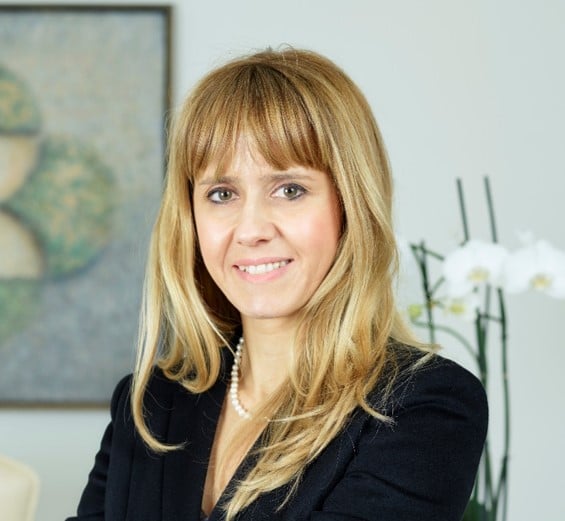 “With us, women make up 51.3% out of about a thousand employees (executives 43%, middle managers 48%, office workers 62%). The figures are slightly inverse globally (49% women, 51% men). To have these numbers means that the journey started many years ago. Inclusion & diversity are a serious project for us: in the world we have many initiatives and policies starting from the MSD woman's network, Lesbian gay bisex network which also involve other categories (eg the disabled). In Italy we have currently opened the MSD woman's network chapter made up of 104 employees who work on projects that promote the culture of diversity. It is precisely thanks to these projects that we have introduced smart working which is improving the work-life balance for everyone, not just for women. For example, we offer all our employees 200 paid hours of parental leave, as well as the time needed for medical visits. We are very keen on the Resources for living project (e.g. discounts for physical activity throughout Italy, free and anonymous psychological counseling, assistance for family problems; tax assistance) and with the Leave it project we take care of the health of our employees by helping and advising them in nutrition and physical activity (there is also a small gym in the Rome office).
“With us, women make up 51.3% out of about a thousand employees (executives 43%, middle managers 48%, office workers 62%). The figures are slightly inverse globally (49% women, 51% men). To have these numbers means that the journey started many years ago. Inclusion & diversity are a serious project for us: in the world we have many initiatives and policies starting from the MSD woman's network, Lesbian gay bisex network which also involve other categories (eg the disabled). In Italy we have currently opened the MSD woman's network chapter made up of 104 employees who work on projects that promote the culture of diversity. It is precisely thanks to these projects that we have introduced smart working which is improving the work-life balance for everyone, not just for women. For example, we offer all our employees 200 paid hours of parental leave, as well as the time needed for medical visits. We are very keen on the Resources for living project (e.g. discounts for physical activity throughout Italy, free and anonymous psychological counseling, assistance for family problems; tax assistance) and with the Leave it project we take care of the health of our employees by helping and advising them in nutrition and physical activity (there is also a small gym in the Rome office).
As for the pay gap, we carried out analyzes by role to see if there were differences between men and women and when we found them, we resolved them, referring to the benchmark of Tower Watson (global consultancy firm also specialized in salary analysis according to precise parameters, ed). We have also implemented measures to promote career progression for women. The European Menthoring Program – of which I am a sponsor – and the Woman leadership program of female leaders take care of it: all the people who, like me, have top roles in the organization are available to any employee for advice on their career.
Sexual harassment? Prevention and contrast represent a very strong value in MSD. Heavy disciplinary sanctions are foreseen. I have been at MSD for 25 years, I was the first ISF and the first female program manager. From day one I was told that if I had a problem from this point of view I should immediately report it to my immediate manager, HR, ethics and compliance and the president and CEO at the time because there would be no form of tolerance. We have an anonymous speak up service but nobody ever uses it.
About my personal experience. Especially at the beginning there was a need to prove twice as much to get the same result as a male colleague. Now and for several years this is no longer the case. Values and culture have transformed, both within organizations and towards the outside world. Obviously the renewal of generations has been of great help.
I have two children, I strongly wanted a family, I would never have put my career in front of me, I even gave up his acceleration because I wanted to be close to them, nor did I want my husband to give up his job to follow me abroad. There were additional difficulties related to the fact of not being mobile (in a multinational it weighs…) but will and power and if the company believes in your talent it will give you a chance. Then it's up to you to get involved.
My Responsibility in Recruitment? Quotas are useful but today I no longer look at them: the only thing that counts is hiring the right person in the right job, regardless of gender, age, political orientation or religion. And you try to figure out whether or not that person is a talent to nurture."
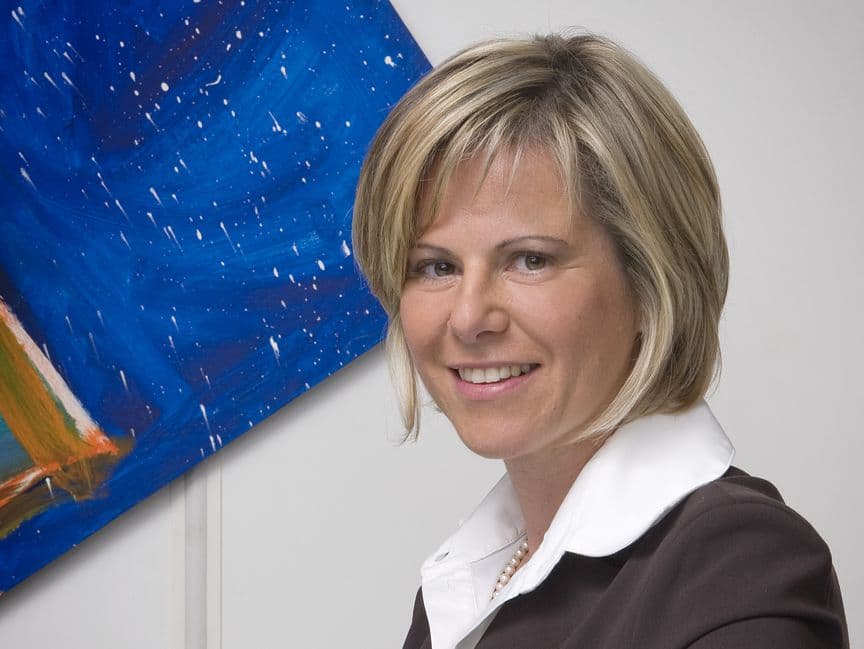 Silvia Nencioni, president and managing director of Boiron Italia
Silvia Nencioni, president and managing director of Boiron Italia
“For the Italian branch, founded in 1979 in Segrate, today almost 200 people work, half in the headquarters, the others in the area. There is good data on women's quotas: 70% of Boiron's collaborators are women and the proportion is much higher on the board of directors. At Boiron, we do not base our searches on gender or even age. Rather, we are looking for people with what are valuable skills for us: the ability to be yourself, to listen to yourself and therefore to listen to others as well. The watchword is 'autrement', the search for “different and creative ways” to do our job in the best possible way. Every person who joins a company changes its fabric.
As for me, I graduated in 1995 in pharmacy and in the same year I started my career in Boiron as Pharma company sale representative, a true ambassador of the company in the area. In those years, I felt at the forefront of contributing to the development of homeopathy in our country. I reflected in the company's desire to focus on the patient and his health, through the production of effective and at the same time non-iatrogenic medicines. It was Christian Boiron, then general manager of the company, who saw value in me and entrusted me with ever greater responsibilities: I held various positions until my appointment as national head of medical information in 2003, scientific director in 2007, managing director in 2009 and president of Boiron Italia since 2012”.
Emma Charles, general manager of Bristol-Myers Squibb Italy
 “We are rare at the top of companies, but precious. Women express a leadership oriented towards listening and active inclusion. These characteristics are still often regarded as weaknesses, while they represent an asset. Personally I am very oriented towards the development and growth of people's skills. The key lies in everyone's responsibility.
“We are rare at the top of companies, but precious. Women express a leadership oriented towards listening and active inclusion. These characteristics are still often regarded as weaknesses, while they represent an asset. Personally I am very oriented towards the development and growth of people's skills. The key lies in everyone's responsibility.
pay gap? It persists in the world of work in general, as evidenced by the numerous actions in favor of wage equality put in place by various countries of the European Union, but which often have only a programmatic value. In our company, on the other hand (410 employees, ed) we have activated remuneration mechanisms and policies aimed exclusively at enhancing skills, so we do not have the problem of wage differences based on gender. All policies companies are “gender neutral,” either when we select new candidates and when we promote our people.
A concrete example of the possibility for women in Bristol-Myers Squibb to access the highest positions in the company is the composition of our Leadership Team in which the number of female directors is equal to that of men. As a woman, mother and manager, I am convinced that in order to facilitate women's access to the world of work and managerial roles, strategies must be promoted to reconcile work and private life commitments. In Bristol-Myers Squibb, we have been adopting the smart working program for some time now which, starting this year, will become two days a week.
To encourage and promote the culture of diversity and inclusion, in 2018 we also launched the B-Now (Bristol-Myers Squibb Network Of Women) project in Italy, which supports the development of women in the company both in terms of professional growth and for the development of female leadership. We also intend to increase the ability to attract women within Bms, especially young graduates in STEM subjects (Science, Technology, Engineering and Mathematics). We also launched another important campaign this year called Possibility Lives, dedicated to all employees, who we ask them to put into practice every day concrete actions in favor of inclusion, such as exploring new ideas. Because our mission is to provide innovative medicines to people with serious illnesses, we want to encourage a culture that embraces different viewpoints to enhance the quality of our decisions.
For us women it is more difficult to make a career and not only due to the constraints imposed by society or companies, but precisely because of how we approach life, so differently from men. We have the ambition to want to manage everything together: work, family and personal fulfilment. And we want to do it by imposing very high levels of performance on ourselves. I personally come from a family where women have always worked and were financially independent. My mother a university professor, my grandmother a postman. I think it's very important for women to be able to follow their aspirations, realize their ambitions and be proud of it”.
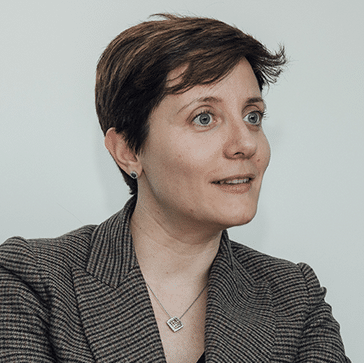 Tiziana Mele, managing director of Lundbeck Italy
Tiziana Mele, managing director of Lundbeck Italy
“The 75% of our employees are women (30 people at the headquarters and 80 in the area) with an average age of 44. Considerable progress has been made against gender discrimination in the healthcare industry but being a woman in Lundbeck has never been a problem, rather a value: before signing the contract, I found out I was pregnant and I communicated it to the company, but I didn't they put me in any kind of obstacle, on the contrary, they even eliminated the trial period for me. It was a testimony of trust, above all in not wanting to weigh down that beautiful event for me. I can't know how many companies would have done the same but it certainly isn't a common attitude. Just check the composition of the executive committees to understand how real the problem is in other realities. Lundbeck Italia is currently all female (there are now two open positions and I'm also looking for men for diversity and to create balance), at company level out of 110 employees, 52% is made up of women.
In our reality there is no pay gap. We have a reference matrix, we are based on the role benchmark compared to the market average and, based on the person's performance, we have salary increase grids. The gap, when there is, is not with respect to sex. Even before my hiring, adequate policies were in place and the history of my hiring testifies to this. In recent years we have pursued the policy of rewarding female talent alongside many male talents. When I arrived at Lundbeck, the management team was made up of all men and only two women: their number has doubled in four years. We don't have any inclusion&diversity projects planned because it's not really a problem for me. We don't need a project and the facts prove it”.
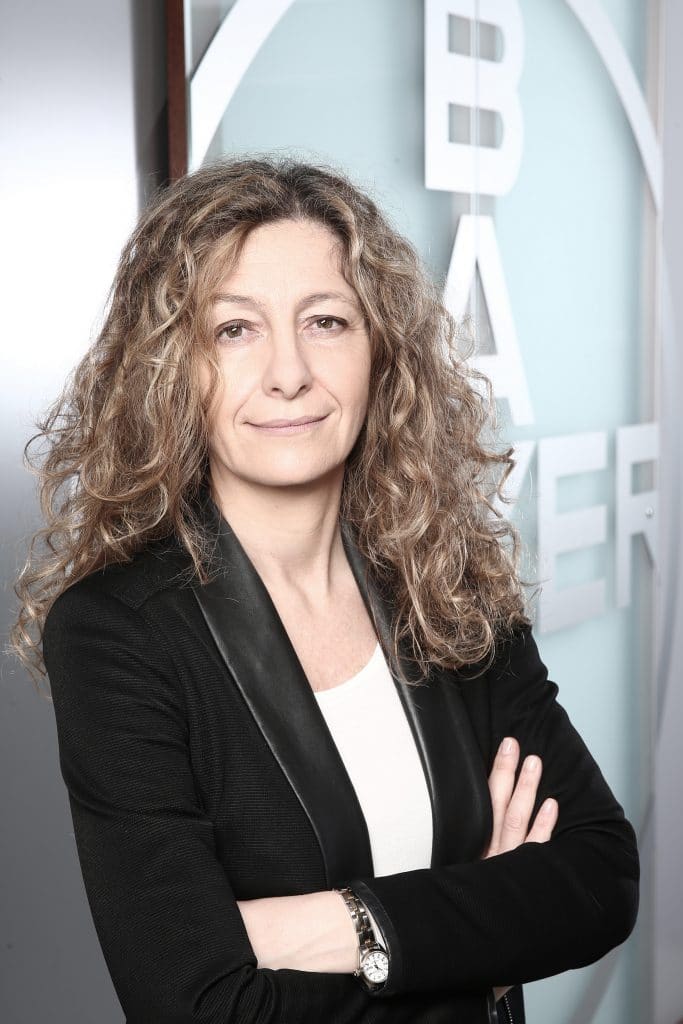 Monica Poggio, CEO of Bayer Italy
Monica Poggio, CEO of Bayer Italy
“Bayer is a very open company from the point of view of inclusion and gender, family and people and this fact also brings about the inclusion of the female gender. If we then look at the data from Bayer Italia, almost 50% of the population is female, as are managers. In addition, approximately 35% of management positions are held by women. In our company there are no numbers that show obstacles, on the contrary, we live in a reality in which women have access also thanks to systems for developing their position and potential that avoid gender gaps".
Rita Cataldo, president and country manager of Takeda Italia
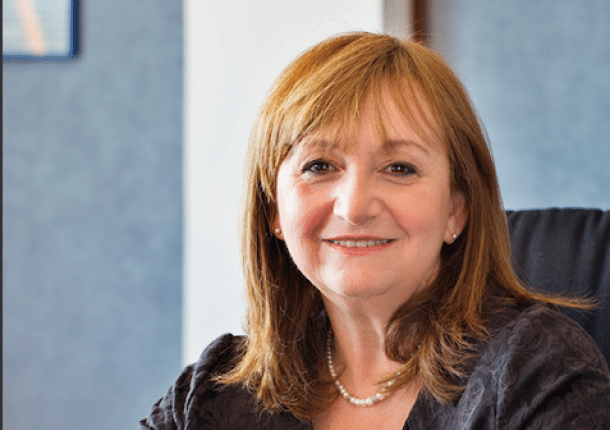 “When we talk about this issue I always say that for me it wasn't a gender issue. Since my university days (I have a degree in industrial chemistry) we were few women and I must say that I have never encountered any kind of difficulty, quite the contrary. I would say from the beginning I found myself in a context of equal opportunities. Perhaps because I had the privilege of working in multinational companies where the concept of diversity and inclusion was already well integrated and thanks to my skills, my university background and work experience abroad, I had the same opportunities as my colleagues. I always like to tell my colleagues not to make it a gender issue, first you need to highlight your skills. Everything else comes by itself. I am against quotas, they are a form of discrimination”.
“When we talk about this issue I always say that for me it wasn't a gender issue. Since my university days (I have a degree in industrial chemistry) we were few women and I must say that I have never encountered any kind of difficulty, quite the contrary. I would say from the beginning I found myself in a context of equal opportunities. Perhaps because I had the privilege of working in multinational companies where the concept of diversity and inclusion was already well integrated and thanks to my skills, my university background and work experience abroad, I had the same opportunities as my colleagues. I always like to tell my colleagues not to make it a gender issue, first you need to highlight your skills. Everything else comes by itself. I am against quotas, they are a form of discrimination”.
The exponents of the great industrial dynasties (eg Lucia Aleotti, Diana Bracco, Elena Zambon) are missing from the appeal - certainly not by editorial choice. AboutPharma looks forward to a next opportunity.
Related news: Farm industry. The role of women as protagonists and influencers in caregiving





